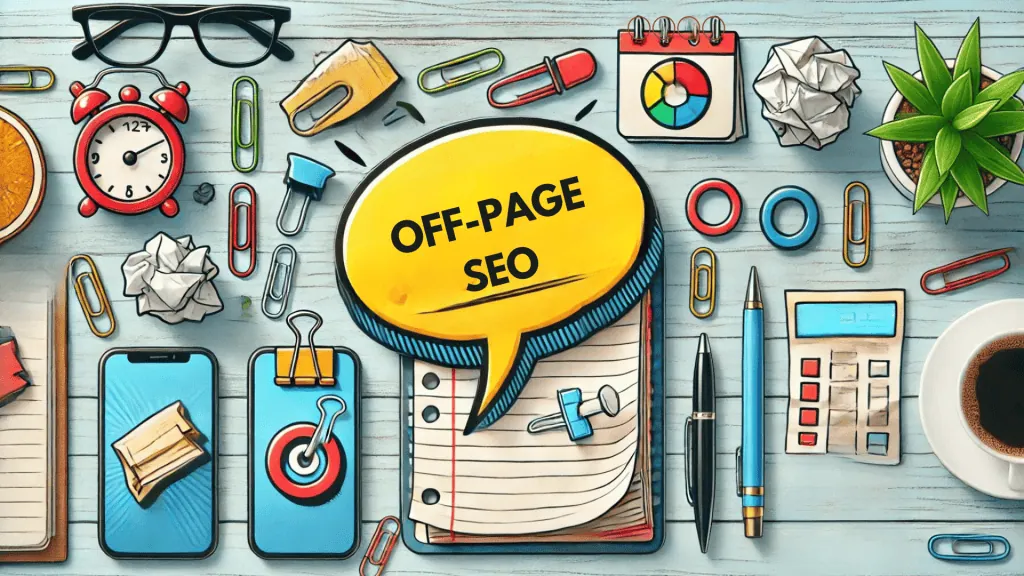Search Engine Optimization (SEO) is a cornerstone of digital marketing, essential for improving a website’s visibility on search engines like Google. For beginners entering the vast realm of SEO, understanding SEO basics for beginners is key to laying a strong foundation for future success. This guide will take you through the fundamental aspects of SEO and provide insights on how you can leverage these principles to enhance your website’s performance, especially for small businesses.

What is SEO?
SEO, or Search Engine Optimization, is a digital marketing strategy focused on increasing the quantity and quality of traffic to your website through organic search engine results. Unlike paid advertising, SEO focuses on unpaid (organic) results, making it a cost-effective strategy for long-term success. By optimizing various elements of your website, you can improve its ranking on search engines, thereby making it easier for potential customers to find you.
The Importance of SEO for Small Businesses
For small businesses, SEO can be a game-changer. When implemented correctly, SEO can drive more traffic to your website, leading to increased sales and brand awareness. Small business SEO services often focus on local SEO, which helps businesses appear in search results for local queries. Understanding the benefits of SEO can help small businesses compete with larger corporations, as search engines prioritize relevance and quality over size.

The Basics of SEO
1. Keywords: The Cornerstone of SEO
Keywords are the foundation of SEO. They are the terms and phrases that users type into search engines when looking for information. Identifying the right keywords that your target audience uses and strategically incorporating them into your content, titles, and meta descriptions can significantly boost your visibility. Tools like SE Ranking can help you identify high-performing keywords relevant to your niche.
When choosing keywords, it’s important to focus on both short-tail and long-tail keywords. Short-tail keywords are broader and more competitive, while long-tail keywords are more specific and can attract highly targeted traffic. Beyond keywords, understanding how tools like SEO traffic bots such as ClickSEO simulate user interactions can help you analyze and optimize for better click-through rates and engagement. Learn more about how these tools work to improve your SEO strategy.

2. Content Quality: Why Content is King
In the world of SEO, content truly is king. Creating informative, engaging, and original content that addresses the needs and interests of your audience is essential. High-quality content not only helps in ranking but also in building trust with your audience. Understanding SEO basics for beginners is crucial here. When visitors find your content useful, they are more likely to stay longer on your site, reducing bounce rates and increasing the chances of conversion.
SEO ads can sometimes overshadow the importance of organic content, but in reality, a well-optimized website with strong content can outperform paid SEO in the long run. This is particularly important for small businesses that may not have the budget for extensive paid campaigns.
3. On-Page SEO: Optimizing Individual Web Pages
On-page SEO involves optimizing individual web pages to rank higher in search engines. This includes optimizing your content, HTML source code, title tags, headers, and images. A critical aspect of on-page SEO is ensuring that your URLs are clean and descriptive, which makes it easier for both users and search engines to understand the content of the page.
Another important on-page factor is the use of internal linking. By linking to other relevant pages on your site, you can help search engines understand the structure of your website and keep visitors engaged by guiding them to related content.

4. Off-Page SEO: Building Authority Through Backlinks
Off-page SEO focuses on external factors, particularly building backlinks from reputable websites. Backlinks act as votes of confidence from one site to another, signaling to search engines that your content is valuable and credible. A strong backlink profile can significantly boost your site’s ranking on search engines.
To build backlinks, you can engage in activities such as guest blogging, influencer outreach, and participating in online communities relevant to your industry. It’s important to focus on quality over quantity—one link from a high-authority site is worth more than numerous links from low-authority sites.

5. Technical SEO: Enhancing Your Site’s Structure
Technical SEO deals with the non-content elements of your website, such as site structure, navigation, mobile-friendliness, and loading times. A well-structured website is easier for search engines to crawl and index, which can lead to better rankings. Additionally, with the increasing number of mobile users, ensuring that your website is mobile-friendly is crucial for maintaining good SEO performance. You can also improve user experience by applying CSS tricks for beginners, which enhance your site’s visual design and usability—both important factors for SEO.
Page speed is another critical factor in technical SEO. Search engines prioritize fast-loading websites, as users are more likely to abandon a page that takes too long to load. Tools like Google’s PageSpeed Insights can help you identify and fix issues that may be slowing down your website.
Is SEO Worth It?
Given the time and effort required, many small business owners may wonder, “Is SEO worth it?” The answer is a resounding yes. The benefits of SEO extend far beyond just improving search engine rankings. A well-optimized website can lead to increased traffic, higher conversion rates, and long-term business growth. Unlike paid SEO, which requires continuous investment, the results from organic SEO are more sustainable over time.
Moreover, being featured on the best small business websites can further enhance your credibility and reach. These websites often highlight successful businesses that have effectively implemented SEO strategies, serving as case studies and inspiration for others.

The Role of SE Ranking in SEO
SE Ranking is an invaluable tool for anyone serious about SEO. It offers comprehensive features for keyword research, competitor analysis, and site auditing, making it easier for small businesses to compete with larger players in the market. By using SE Ranking, you can track your website’s performance and make data-driven decisions to improve your SEO strategy.
Whether you’re just starting out or looking to refine your existing strategy, SE Ranking can provide the insights needed to achieve your goals.
Final Thought: Taking the First Steps in SEO
SEO is a powerful tool for enhancing your website’s visibility and attracting more visitors. By understanding and implementing the basics—such as keyword optimization, high-quality content, on-page and off-page SEO, and technical SEO—you can build a strong foundation for your website’s success. Understanding SEO basics for beginners is crucial for small businesses, as investing in SEO is not just about being visible; it’s about staying competitive in an increasingly digital marketplace.
Remember, SEO is a long-term strategy. While the results may not be immediate, the benefits of SEO are well worth the investment. With the right tools, like SE Ranking, and a commitment to continuous improvement, your website can achieve higher rankings and greater visibility, leading to sustainable business growth. Come discover how our expertise in search engine optimization can elevate your digital presence and drive your business forward.
